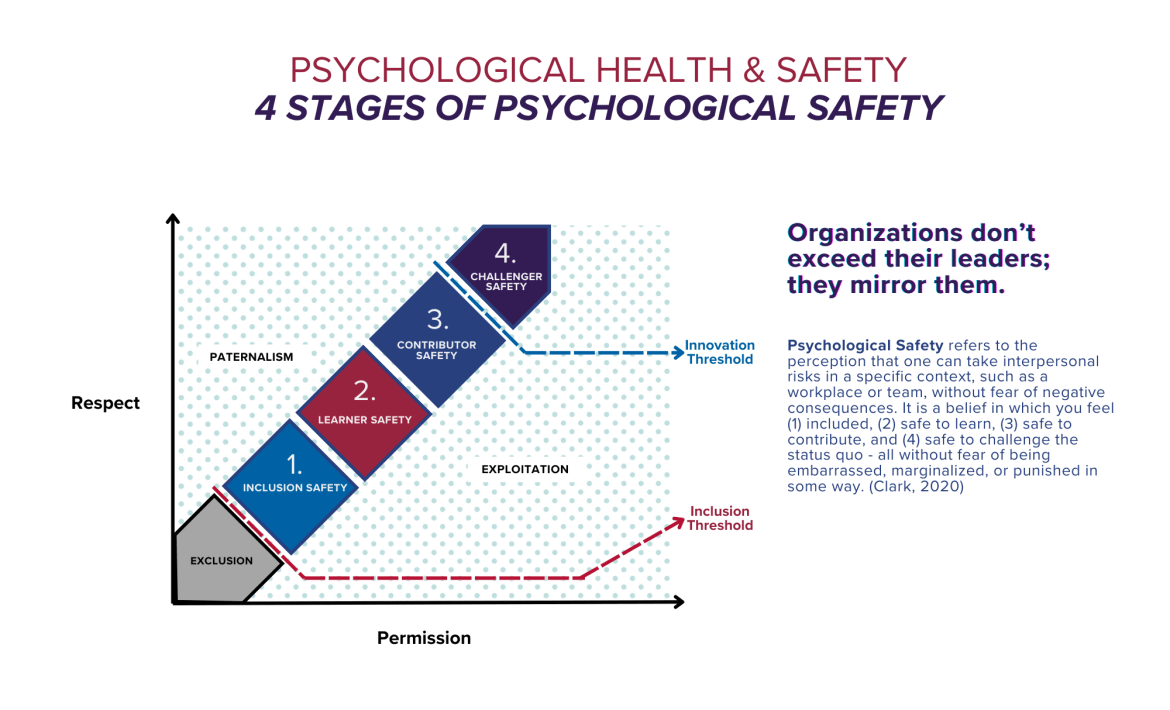Dr. Timothy R. Clark’s Four Stages of Psychological Safety are key to creating a healthy workplace environment:

- Inclusion Safety: Ensuring individuals feel accepted and valued within the team. Psychosocial factors such as Involvement and Influence, Support for Psychological Self-Care, Psychological Support, and Civility and Respect are critical. Individuals may feel isolated without inclusion safety, triggering self-censorship and reducing personal growth and productivity.
- Learner Safety: Creating an environment where growth is encouraged and mistakes are viewed as learning opportunities. Factors such as Clear Leadership and expectations, Growth and development, and Psychological Competencies and Demands are essential. Without learner safety, fear of failure stifles innovation and inhibits a growth mindset.
- Contributor Safety: Enabling team members to contribute meaningfully by providing autonomy and encouragement. Recognition and reward, Involvement and influence, and Staff Engagement play crucial roles. The absence of contributor safety leads to micromanagement, burnout, and reduced job fulfillment.
- Challenger Safety: Encouraging team members to suggest improvements and constructively challenge the status quo. Factors like Psychological Protection, Clear Leadership and expectations, and Organizational Culture support this stage—a lack of challenger safety results in fear-driven compliance, stifling innovation, and diverse perspectives.
Fostering psychological safety at every level ensures a supportive and productive work environment. Prioritizing these stages boosts team collaboration, personal growth, and job satisfaction, ultimately improving patient care and organizational success at KHSC.
Check out the links below for more information
